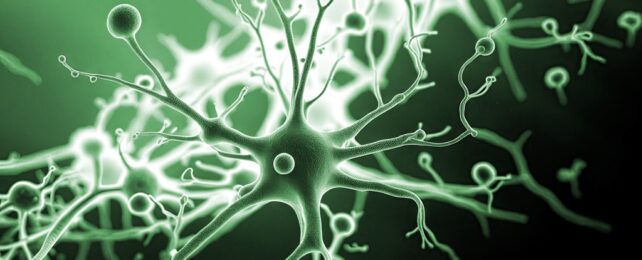It's not entirely understood how Alzheimer's disease gets started or takes hold, but tangled up tau proteins in the brain are thought to play a key role – and new research sheds light on the devastating damage these protein tangles can cause.
The more we know about how these proteins function in brains affected by Alzheimer's, the better we can target efforts to find an effective treatment for the disease and other tauopathies (neurodegenerative disorders caused by tau tangles).
A team from the University of Virginia took a close look at brain tissue from people who had died with Alzheimer's, as well as brain tissue from mice bred to develop a similar disease, in order to identify the effects the tau proteins were having.
"A lot of fantastic research has been done by other labs to learn how toxic tau spreads from neuron to neuron in the brain, but very little is known about exactly how this toxic tau damages neurons, and that question is the motivation for our new paper," says biologist George Bloom.
The researchers discovered that tau oligomers – clumps of the protein that are smaller than the tangles that eventually develop – damage the structure of nuclei inside neurons, causing them to fold in on themselves.
That's then likely to alter the genetic processing in the neurons, according to the team behind the study. While this kind of nuclei breakdown has previously been linked to Alzheimer's, before now it hadn't been clear what was causing it.
"Our discovery that tau oligomers alter the shape of the nucleus drove us to the next step – testing the idea that changes in gene expression are caused by the nuclear shape change," says Bloom.
"That's exactly what we saw for many genes, and the biggest change is that the gene for tau itself increases its expression almost threefold. So bad tau might cause more bad tau to be made by neurons – that would be like a snowball rolling downhill."
The next step is to investigate the precise biological mechanisms that mean the tau oligomers are triggering this damage, and from there disrupting the normal functioning of the brain cells and the brain as a whole.
In some ways, tau oligomers are precursors to tau proteins, which suggests that stopping this kind of protein build-up might also stop Alzheimer's in its tracks – but we're going to need a lot more research before we can get to that point.
"The toxic tau described here is actually released from neurons, so if we can figure out how to intercept it when it's floating around in the brain outside of neurons, using antibodies or other drugs, it might be possible to slow or halt progression of Alzheimer's disease and other tauopathies," says Bloom.
The research has been published in Alzheimer's & Dementia.
